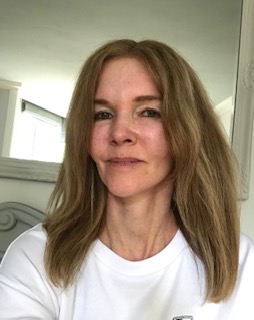In my work supporting survivors of domestic abuse, I have become very aware that many women seem to favour familiarity in their choices, actions and thoughts, even when that familiarity is painful, uncomfortable and not serving them well. Freedom and choice can seem frightening, new possibilities, daunting. Remaining in a rut of negative thoughts and behaviour patterns can appear comfortable and familiar – destructive behaviour and unhelpful ways of operating will often have a secondary gain. When moving on from a bad situation, we will have losses and it’s important to acknowledge those losses because unless we do, we will tend to sabotage our own efforts to make positive progress.
The biggest challenge faced by women suffering domestic abuse is giving up the perpetrator and leaving the relationship. Because we’re concentrating here on post-separation abuse, most women reading this will hopefully have already met this enormous challenge – the rest should be easy! When dealing with post-separation abuse, to make progress, develop ourselves and truly survive the on-going experience, it’s important to acknowledge what we need to let go of before we will be free to embrace our relative freedom and increased choices.
Giving up the hope your abuser will validate your mothering
It’s so common for women to go to supreme efforts to win validation from their former partner, especially when it comes to judgments on their mothering. It’s not likely he will ever validate you as a good person or loving mother. Giving up on the hope that he might will be liberating. It will also allow you to take back control when your sense of worthiness is no longer dependant on hoping that an abusive man will stop being abusive.
I was desperate to prove to him how well I was caring for our children. However hard I tried, he still called me selfish. I get my validation from within now.
Giving up on the happy co-parenting ideal
Having left the abusive relationship, women have finally given up on the dream of happy family life with both parents lovingly caring for their children. However, post-separation, my experience is that many still cling to the hope that they can amicably co-parent with an abusive man. They often seem surprised every time he reminds them of just how abusive he is. The vast majority of abusive men remain abusive post-separation. Imagining they will give up their control just because the relationship has ended is fantasy. If you hope to amicably co-parent with your abusive former partner, you’re likely to be disappointed. Just as giving up on the hope that he will validate your mothering may liberate you, so will giving up on the amicable co-parenting dream. When you have a more realistic perspective, you’ll be more able to protect yourself from unnecessary hostile communications, or be less surprised when they happen. Often, the best way forward having left an abusive man is to ‘parallel parent’. Unlike co-parenting, parallel parenting works on the basis of limiting communication to the minimum required to make essential arrangements.
I think I had an idealised view that once the relationship had ended, we could have a respectful and mutually supportive co-parenting arrangement. I couldn’t have been more wrong. I had no idea that he would want to maintain his control over me after I’d left. At least I’m no longer deluded, I don’t offer him kindness in the hope of him reciprocating because I now know that it’s pointless.
Giving up on trying to please everyone
Women in abusive relationships generally work very hard in the vain effort to please their abuser and to do everything he expects of them, generally putting their own needs to one side in the process. Once they have left, this selfless pattern of giving to others and ignoring their own needs can persist, it becomes a habit. Women commonly aren’t able to identify what their needs might be when they have brushed them aside for so long. Together with this, the low self-esteem and lack of confidence that commonly affect survivors can make them very focused on people pleasing – feeling unworthy of their friends can make women give more than they expect to get back in return. Unbalanced or abusive friendships can develop which may hinder recovery. Being a people pleaser is indicative of low self-esteem and lack of boundaries. Moving towards recovery, it’s important to challenge this behaviour with a view to building strong boundaries, prioritising your own needs and developing mutually supportive friendships.
I’d been putting Mark’s needs before my own for so long that I had no idea what my needs even were when he left me. I had to work very hard to establish what I wanted to do, to achieve and to strive for.
Giving up on your refusal to entertain another relationship
You may feel justified in refusing to risk another intimate relationship, never wanting to be hurt again. You may have decided that all men are unsafe and that you can protect yourself by remaining single. This might help you to feel safe and it’s normal to feel like this when you’ve been abused. However, having a healthy intimate relationship is a huge positive in life and is part of the normal human experience. To deny yourself this possibility because you want to remain in your comfort zone is indicative of not recovering from your abuse. Once you understand about domestic abuse and know the ‘red flags’ of perpetrator behaviour, and once you put strong boundaries in place so you have a clear understanding of the behaviour you will no longer tolerate, you will be in a safer position to being open to the possibility of another intimate relationship, and you’ll no longer feel the need to deny yourself another chance.
I’m done with men, I can’t trust them. I’m never going to risk being in this situation again. I’m staying single, it’s the only way I know I know I can stay safe. (Sasha, 25)
Giving up on the abusive relationship dynamic
When women have been in an abusive relationship and enter a subsequent relationship with a kind and compassionate man, it’s not unusual for them to feel deep discomfort and dissatisfaction, they will sometimes end the relationship and seek another abusive man again. There are a number of reasons for this. Being allowed choice in a non-controlling relationship can make many women feel deeply insecure, it’s not what they’re familiar with and this ability to take control can feel disconcerting. Women may also feel unworthy of being treated with kindness and compassion when their self-esteem has been so badly knocked by abuse, so the kindness they are shown in a healthy relationship can feel very uncomfortable to accept. Another factor is that if women were ‘trauma bonded’ in a previous abusive relationship, the intensity of love they feel for a subsequent non abusive partner just won’t be as strong, so they may want to reject the healthy relationship as it doesn’t thrill them enough. I have worked with women who have been trauma bonded and I know it’s common for them to reject subsequent ‘nice’ men in favour of another ‘bad boy’ who will treat them badly but thrill them on the rare occasion that he’s loving. For all of these reasons, it is important to heal, recover and self-reflect before entering another relationship.
I was trauma bonded in my previous relationship. Now I’m with a nice, kind man and we have two children together. I don’t get the highs I got in my abusive relationship. Sometimes this makes me feel sad, knowing I will never get those feelings again, but I don’t get the lows either and the majority of my relationship with my perpetrator was a low. I am in a much better place now, it’s like I’ve come off the drug and I’m now living a healthy and stable life.
Giving up on your victim status
Feeling sorry for yourself and eliciting sympathy from others can feel indulgent and familiar. When you can pin all of your life’s disappointments on your perpetrator, it lets you off the hook and you don’t have to take personal accountability for the way your life turns out.
Domestic abuse generally triggers low mood and anxiety. Low mood can sap energy and lead to apathy and lack of motivation to get much done. Anxiety can lead women to be fearful, especially wary of new experiences, they may feel the need to live well within their comfort zones and be reluctant to take on new challenges. Low mood and anxiety provide ready excuses for dismissing challenges. We may imagine that by not pushing ourselves, we can stay safe. New experiences can seem risky and frightening, so we may rely on justifications that we’ve been damaged by abuse and need to protect ourselves
While the damage caused by abuse is real, limiting our horizons with self-protective behaviours that you believe will keep you safe can be counter-productive – inactivity generally makes things worse. Getting out, doing things, exercising, taking risks, setting goals, volunteering and facing fears will lift your mood. You may think there is no risk of ‘failure’ if you don’t attempt. However, the only real failure is not attempting in the first place.
I cocooned myself in a protective shell after my relationship ended. I was too stressed to work, rarely went out and gave up on most of my friends. I thought I could keep myself safe by avoiding the world. It doesn’t work like that though. Two years into living this ‘small life’, I realised things were getting worse, not better. Going out became more challenging as time went on and more and more situations would make me feel anxious. My low mood became depression and on many mornings I would struggle to get out of bed. Counselling helped me to see what was happening, I realised I wasn’t a survivor, I was a victim. I’d blamed my abuser for the situation I was in but in doing so, I was giving him my power. Progress has been tough, it’s not always been easy and I’ve needed help, but I’ve challenged myself, pushed myself and got my life back on track and feel so much more resilient. I feel proud of what I’ve achieved and I’m much happier. I am most definitely a survivor now.
When you’re able to name and acknowledge what you need to give up, understand the sense of loss this may cause, be prepared to do things differently, feel the fear of the unfamiliar, take risks, accept personal accountability, step out of your comfort zone and go for it, you can properly leave your victim status behind you. When you do this, a new and exciting world opens up to you.
One in Four Women – understanding men’s domestic abuse and violence against women. Link to purchase the book below. https://www.amazon.co.uk/dp/1739647912
Beyond the Break-up – understanding and surviving men’s domestic abuse and violence against women post-separation. Link to purchase the book below.
Published 15 March 2023

